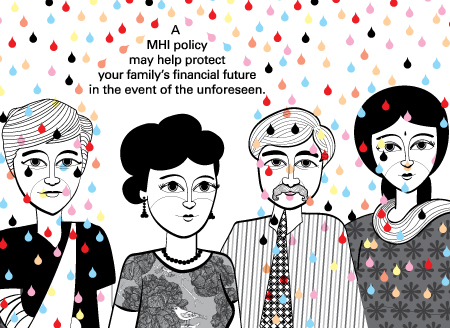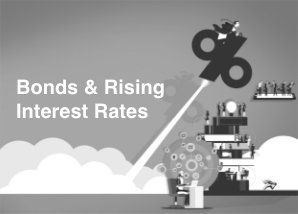Are rising medical costs
getting you down?
“Prevention is better than cure,” goes the wise saying of Eramus, a philosopher of the Renaissance era1. That would be ideal but what happens when illness, despite your best efforts in staying healthy, knocks on your door? A visit to the hospital may be necessary and medical bills, inevitable.
Medical costs have escalated around the world and this is no different locally. Medical inflation in Malaysia averages about 10% each year and is projected to continue to rise. For example, in 2012, treatment for kidney failure costs a minimum of RM150,000 and should medical inflation continue rising at current rates, the same treatment may be as high as RM225,000 in 5 years’ time. In fact, medical costs is one of the chief worries of Malaysians, with 64% of survey respondents of The Future of Retirement citing fears of not having enough money for good healthcare provision as they enter retirement4.
Without adequate financial resources, one may turn to public hospitals, which are subsidised by the government and provide affordable healthcare to the masses. The government subsidy reduces the financial burden on patients, who may receive hospital treatment for less than RM500, regardless of the duration of stay5. They do offer good medical treatment but patients may be subject to longer waiting times and perhaps, less personalised attention from the doctors due to the volume of patients they need to oversee6.
Whether you use public or private healthcare, it is your preference. However, being financially prepared can open up more options for you – such as opting for a private hospital or the doctor of your choice or even seeking medical treatment overseas. During a health crisis, you would wish to have these options available to you rather than be without them. How then, do we prepare financially for a medical eventuality?
What can you do to keep up with rising medical costs?
Medical and Health Insurance (MHI) is a viable option as it may provide needed funds for medical bills should you get injured or fall ill and incur expenses such as hospital room and board charges, surgery fees and cost for medical supplies and services. Having your bills taken care of may give you the peace of mind to focus on the most important task-getting well again.
A MHI policy may help protect your family’s finances in the event of the unforeseen. A sudden, hefty medical bill may leave you in debt or drastically reduce your savings. Your retirement may also be affected as you dip into your retirement funds to pay for high health care costs. With a MHI policy that reimburses your medical bill such as surgical fees, room and board, you may not have to pay for all your medical expenses from your own pocket7.
Depending on the MHI policy, it may also offer an allowance if you are unable to work due to the illness or injury. This caensure continued provision for you, up to a specific number of days, as stated in the policy8.
Some policies may also cover costs for pre- and post-hospitalisation test,consultations and reatments, depending on the terms of the policy. This may further reduce the burden of your medical bills8.
You’re healthy now, do you still need a MHI?
Perhaps you’re in great shape and you rarely get sick. You don’t see the need for a MHI policy. However, an accident or medical problems may happen unexpectedly, regardless of your age. Furthermore, should you have any concerns with your health, you may be more likely to seek a doctor’s care or undergo a health screening when you know your insurance policy may make it more affordable.
Besides that, when you are young and healthy, it may be the best time to consider a MHI policy as the premiums are usually more affordable. Let’s take a look at the different plans available in the market:
Hospitalisation and surgical insurance
Provides for hospitalisation and surgical expenses incurred due to illnesses covered under the policy. The policy may issue a medical card for the convenience of cashless admission to hospitals.Provides for hospitalisation and surgical expenses incurred due to illnesses covered under the policy. The policy may issue a medical card for the convenience of cashless admission to hospitals.
Dread disease, or critical illness insurance
Provides you a lump sum benefit, depending on the amount of coverage selected, upon diagnosis of any of the 36 dread diseases or specified illnesses.
Disability income insurance
Provides an allowance to replace a portion of your pre-disability income when you are unable to work because of sickness or injury.
Hospital income insurance
Pays you a specified sum of money on a daily, weekly or monthly basis, subject to an annual limit, if you have to stay in a hospital due to covered illness, sickness or injury.
Depending on your needs, you may obtain these products individually or packaged together in one plan9.
Questions to ask when considering Medical and Health Insurance11
Before you get a MHI policy, take a few moments to assess your needs and be clear on the insurance coverage you require. The following questions may be helpful in assisting you to consider your MHI needs11.
Do you currently have a health insurance policy?
If your current plan was taken up many years ago, you may wish to review the benefits to ensure sufficient coverage, for example, whether its Hospital Daily Room & Board rate matches current hospital rates? Some private hospitals may charge RM230 upwards for a standard single room10.
Do you understand how the insurance policy works?
Is there a co-insurance? How will it be calculated? Is there a maximum limit to the portion you may need to pay? Are there any annual or lifetime limits on how much you can claim? These are important points to note in order to know what you are buying into. If there are portions of the plan that you do not understand, do seek to clarify with your insurance representative.
Is the insurance company a reputable one?
To be on the safe side, you may want to only deal with a licensed insurance company or its authorised agents when you buy a MHI policy.
Are you in the midst of a major life change?
Getting married, pregnant, retiring? You may wish to review your insurance plan with regard to these changes, e.g, getting insurance coverage for your children, etc.
If you’re insured by your employer, do you know all the plan options your company provides?
Is the insurance coverage adequate? If not, what would you need to beef up your protection? For example, if your company provides a Medical and Personal Accident plan, you may wish to consider coverage against Critical Illness and Total and Permanent Disabilities.
Do you have a pre-existing condition?
A pre-existing condition may make it tough for you to get new coverage or it may cost you more. If you decide to buy a policy, you will need to disclose any pre-existing condition you have. Any information on a medical condition you neglected to mention may cause your coverage to be refused. Do check with the insurance company or the insurance representative for more information.
Can you afford the premiums?
If you wish to purchase a MHI, get one with premium rates you can comfortably service.
Is it guaranteed renewable?
If so, until what age? You may wish to have a policy that guarantees its renewal, especially in your later years when you need it the most.
Is there someone who can help you understand your health insurance needs better?
A trusted insurance representative or HSBC’s Relationship Manager may be able to shed more light on a plan that best suits your needs.
Once you have a clearer idea of your protection needs, you may want to allocate some time to discuss available MHI products in the market with your insurance company or insurance representative. HSBC’s Relationship Manager may also be able to assist you in explaining our current MHI product that helps shield against rising medical costs in Malaysia.
An option to shield againts rising medical costs
HSBC’s HealthPlus is a long-term basic death/Total and Permanent Disability (TPD) insurance protection plan with optional coverage of Critical Illness Rider and Medical Rider. You may enjoy up to 2 times the initial medical coverage12 and there is no lifetime limit on the total medical claims that you can make. Furthermore, this plan will only expire when the Life Assured attains 81-years-old. TPD coverage will expire upon the Policy Anniversary when the Life Assured attains 65-years-old (age nearest birthday).
Talk to your Relationship Manager for more details on HSBC’s HealthPlus. If you have yet to, consider taking steps today to protect yourself against rising medical costs.
Source:
1 “Collected Works of Erasmus: Ii1 to Iv100.”Adages by Erasmus, Desiderius. 2 Towers Watson, “2012 Global Medical Trends Survey Report”, 2012.3 New Straits Times, “Be prepared for the worst,” February 28, 2012. Calculation based on RM150,000 x 10% = RM15,000, RM15,000 x 5 years = RM75,000. RM150,000 + RM75,000 = RM225,000. 4 Reproduced with permission from The Future of Retirement, Malaysia Report, published in 2013 by HSBC Insurance Holdings Limited, London. 5 The Star, “Liow: Malaysians benefit from affordable healthcare,” September 2, 2011. 6 The Star, “Rising pressure of healthcare cost,” March 14, 2009. 7 United Healthcare, Source4Women, “Benefits of Having Health Coverage” 2013.8 SaveMoney.my, “Medical Insurance in Malaysia – A Beginner’s Guide,” September 19, 2012. 9 Life Insurance Association of Malaysia, “Medical and Health Insurance booklet” (undated). 10 Room rates from the websites of KPJ Damansara Specialist Hospital & Sunway Medical Centre. 11 Adapted from Insuranceinfo.com.my, “Medical and Health Insurance booklet”, (undated).12 Under the Medical Rider, there are 5% automatic increase of initial Overall Annual Limit at the end of every policy year, subject to maximum of 200% of the initial Overall Annual Limit (Regardless of claims experience).
July 2013



 LIKE THIS ARTICLE?
LIKE THIS ARTICLE?





















